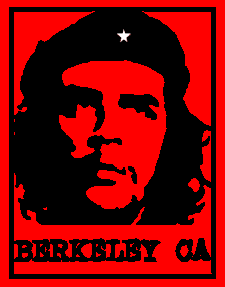Nicholas Carr, following up on Saul Hansell's piece in the New York Times, wrote an interesting entry and posted it on his blog: The net's killer app.
Reproduced below is the dialog Nick and I maitained in the comments section of his blog.
Hi Nick,
I’m a co-founder of Goodmail and an avid reader of your blog (http://dreymann.blogspot.com/2005/10/religion-920.html).
I am quite puzzled when people associate net neutrality with CertifiedEmail. Net neutrality is about allowing me, as a customer, to stream my videos from Google if I chose to, or download images from Flickr (if that’s what I’d rather do). Those are transactions initiated by me, the customer. I am already paying my telco/cable for internet access; I should be able to grab data from whatever corner of the internet I fancy.
Until the introduction of the first stamp in the UK in the 1830’s, postal systems were based on a recipient pay model. If you wanted to get a letter delivered to you, you had to pay the postman. Imagine the post office would require you to pay for all the unsolicited credit card offers you must get daily!
In all type of communications, “calling party pays” is the winning model. One could argue that the reason the US was a laggard in the mobile phone arena was the decision to charge users for incoming “air time”, rather than charging the callers. GSM took the approach of always charging the caller and making incoming calls free; mobile phones minutes in Europe and Asia soon dwarfed US usage. We could rename “calling party pays” to “initiator pay”; this terminology change would address the debate about net neutrality.
Email is not a pull medium. Messages are pushed to consumers. There is no absolute mechanism to assess whether a message is wanted by its intended recipient or not. The mailbox belongs to the recipient. This is why anti-spam filters applied by ISPs, for years now, are legitimate – they’re trying to keep the bad stuff out of their customers’ mailboxes. Spammers have tried to cry “net neutrality” and make filters illegal -- they lost. Consumers don’t want their messages and are happy when their providers block spam, viruses and phishing attempts. I believe courts have blessed this practice of filtering messages in several precedent setting rulings.
Problem is: no filter is perfect. Bad messages go through and “phish” innocent users. Good and wanted messages are blocked (just look at the caption for the NYT graphics: "Of legitimate commercial email, 20 percent is caught in spam filters and not delivered or sent to junk mail folders").
The CertifiedEmail service guarantees good messages are not blocked and lets the recipient tell apart real bank statements from phishing attempts. A good thing, isn’t it?
This is a premium service. Bulk senders are not forced to take advantage of it. If they want to assure delivery of their messages and to relay authenticity to their customers – they will. Senders that want to keep using the current probabilistic system certainly can.
Best,
Daniel
Comment above posted by: Daniel Dreymann at February 4, 2006 05:43 PM
Daniel,Thanks very much for your message. I agree that what you're doing is different from what's usually meant in discussions of potential infringements of net neutrality. And it's a good business idea (if you can pull it off). But I think your "puzzlement" about why "people associate net neutrality with CertifiedEmail" is a rhetorical kind of puzzlement. I don't think net neutrality just means freedom of access for the user. I think it means that the network, and those organizations that control it, are neutral about the content flowing through it. When you speak of your service being a "premium service," you're talking about drawing distinctions between different kinds of content flowing through the network. That doesn't mean it's not a valuable service; it just means that it requires something other than pure network neutrality to work. No?
Comment above posted by: Nick at February 4, 2006 10:35 PM Nick, as you agree that what Goodmail is doing is different from what’s usually meant in discussions of potential infringements of net neutrality, I am no longer puzzled (rhetorically or otherwise). In the email world distinctions are already drawn between “different kinds of content flowing through the network”. There is an overwhelming consensus against being neutral about spam and phishing: filters are using artificial intelligence and manually tweaked whitelists and blacklists in an attempt to route messages about "herbal Viagra" to the spam folder, and legitimate messages from pharmaceutical companies to the inbox. Our endeavor is to do the same in a more rational way and with much better results. So, the answer to your question is: yes, it does require something other than pure network neutrality to work, but in the email space this pure network neutrality is long gone.
Comment above posted by: Daniel Dreymann at February 5, 2006 01:59 PM

